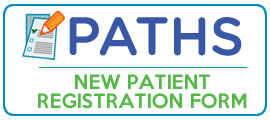What do Audiologists and Speech & Language Pathologists do?
Audiologists examine, test, evaluate and treat those with hearing disorders. Speech-language pathologists perform the same work for those with speech, language, voice, fluency or swallowing disorders. Both may work in private practice, schools, industry, hospitals, clinics, rehabilitation centers, physicians’ offices, schools for the handicapped, nursing homes, colleges and universities, research laboratories, and government agencies.
What might Audiologists and Speech & Language Pathologists do in a workday?
Audiologists:
- determine the range, nature, and degree of hearing function and conduct physiological measurements.
- assist physicians in diagnosing an organic basis for a hearing disability.
- plan and conduct rehabilitation programs (e.g. counseling, auditory training, and speech reading).
- conduct research in auditory systems.
- consult with educational, medical, and other professional groups.
- fit patients with hearing aids, make recommendations, and orientate patients in their use.
Speech-language pathologists:
- identify speech and language disorders and seek to identify their causes.
- plan and conduct therapy for impairments such as aphasia and stuttering.
- counsel patients and families.
- consult with physicians, psychologists, physical therapists, social workers and teachers.
- conduct research related to speech and hearing processes and disorders.
- treat individuals with swallowing and other upper-digestive disorders.
- provide accent reduction and voice improvement instruction.
How much do Audiologists and Speech & Language Pathologists make?
- $40,000 - $80,000 (Audiologists)
- $58,000 - $80,000 (Speech & Language Pathologists)
How do I become a Audiologist or Speech & Language Pathologist?
Students interested in these careers should take high school courses that cover a broad spectrum, including health, social, physical, and biological sciences; English/language arts; mathematics; the humanities (a foreign language); and technology (computer science). Students must complete an accredited program in audiology or speech-language pathology.
To become a certified audiologist or speech/language pathologist, one must complete either a master’s or doctoral degree, successfully complete the required clinical experience, and pass a national exam. Audiologists complete the required clinical experience during their academic program study while speech/language pathologists complete a supervised clinical fellowship after obtaining their master’s degree. There are separate licenses for audiologists and speech/language pathologists in Virginia.
Where else can I learn about becoming a Audiologist or Speech & Language Pathologist?
Speech-Language-Hearing Association of Virginia
3126 W. Cary Street, #436 / Richmond, VA 23221-3504
tel: (888) 729-7428 / web: www.shav.org
American Speech-Language-Hearing Association
2200 Research Boulevard / Rockville, MD 20850-3289
tel: (301) 296-5700 / web: www.asha.org
State Licensure Requirements for Audiologists and Speech & Language Pathologists:
A license is required to practice as an audiologist or speech-language pathologist in the state of Virginia. For more information on licensure, applications and forms, visit www.dhp.virginia.gov/aud.
Virginia Board of Audiology and Speech-Language Pathology
Perimeter Center
9960 Mayland Drive, Suite 300 / Henrico, Virginia 23233
Phone: (804) 367-4630 / Email: audbd@dhp.virginia.gov


